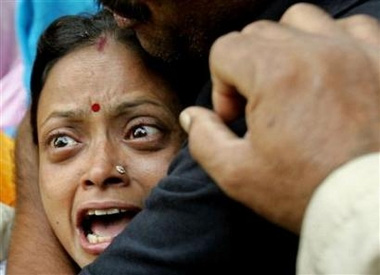
This picture shows the trauma of Mumbai suffered last Tuesday. The accused of Mumbai bomb blast are unknown until yet. The finger of suspect is pointing towards Lashkar-e-Toiba again.
Who runs the terrorist organization, and exactly for what cause? This common question always rises in the mind of common people in India. So to clear those doubts,here is a history of the organisation.
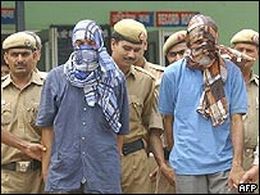
Lashkar-i-Toiba (Army of the Pure) is an Islamic terrorist group that uses military strategies to achieve its aims. Hafiz Mohammad Saeed founded it in 1990 in Pakistan and made it as the most feared terrorist group working in India. However, it is banned in Pakistan since January 2002 following 9/11 attacks.
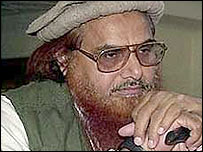
According to the BBC, Lashkar-e-Toiba was formed soon after the birth of its parent religious organisation, Markaz Dawa ul Irshad in the late 1980s.
The Markaz was set up in the town of Muridke outside Lahore by a former professor of engineering at the University of Punjab, Hafiz Mohammed Saeed.
By 1994 Lashkar-e-Toiba had emerged as the militant wing of the organisation.
Unlike most other Kashmir militant groups, a majority of its members were non-Kashmiri, and its headquarters were also based in Pakistan.
Lashkar generally shunned the alliance of the Kashmiri militant groups known as Muttehadda Jihad Council or the United Jihad Council, preferring to act alone.
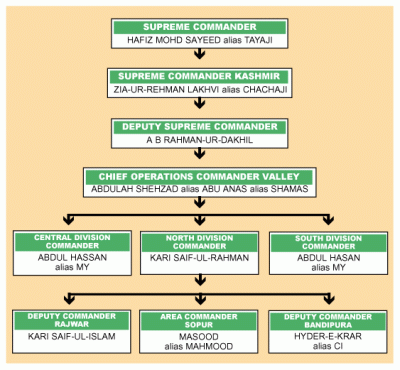
Initially it was ignored by most other groups, but earned their respect once it introduced the concept of “Fedayaeen fighters” to carry out daring attacks against the Indian troops.
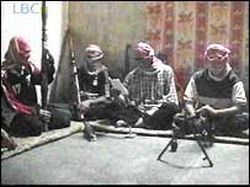
The group carries out attacks on Indian armed forces in Jammu and Kashmir. The Lashkar-e-Toiba terrorist group has repeatedly claimed through its journals and websites that its main aim is to destroy the Indian republic and annihilate Hinduism.
With an estimated strength of 300 terrorists and headed by Mohammed Latif, LeT is reported to be headquartered at Muzaffarabad in Pakistan occupied Kashmir. Primarily, the Lashkar-e-Toiba operates in the Srinagar Valley and the districts of Poonch, Rajouri and Doda.
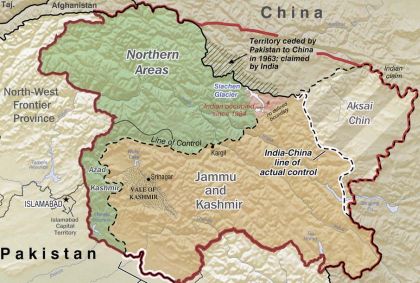
Operational Strategies
LeT has been changing its operational strategies very tactfully and swiftly. But, its core operational strategies are:
# To form several small modules, a module consists of 5-10 persons that work independently of each other.
# To target strategic locations like Army bases and religious places.
# To carry out Fidayeen (suicide) attacks on strategic targets
The Lashkar is claimed to have operated a military camp in ex-9/11 Afghanistan, and extending support to the ousted Taliban regime.
L-e-T is responsible for many terrorist activities in Indian soil. Here you may find the series of incidents L-e-T committed since 1996 in India.
It is said that almost every shop in the main market of each town in Pakistan had a Lashkar collection box to raise funds for the struggle in Kashmir.
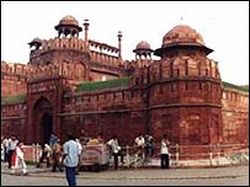
It has not admitted carrying out those attacks. But it does claim responsibility for attacking an army barracks at the Red Fort in Delhi in 2000.
Three people died in the December 2000 attack at the 17th Century fort, one of the capital’s most famous landmarks.
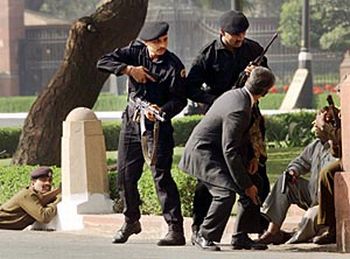
India also says it was involved in the most audacious attack on Indian soil – the armed raid on India’s parliament in December 2001 that brought India and Pakistan to the brink of all-out war.
Until its ban in 2002, Lashkar had never been shy of accepting responsibility for most of the armed attacks against Indian military targets.
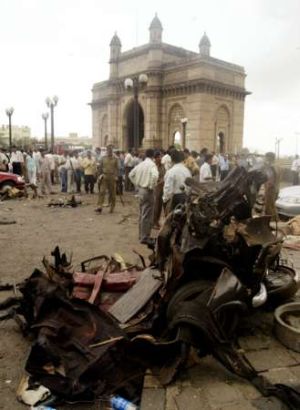
Police accused it of carrying out deadly explosions in the city of Mumbai in August 2003 that killed 55 people and injured 180.
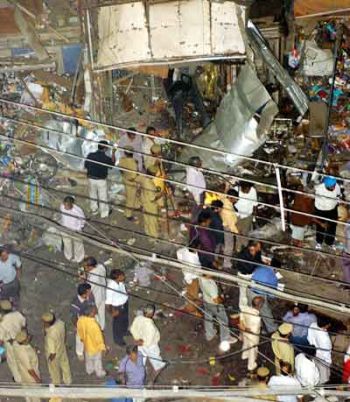
Lashkar has been blamed for bomb attacks October, 2005 in the Indian capital Delhi that killed more than 60 people.
Unlike most other Kashmir militant groups, a majority of its members were non-Kashmiri, and its headquarters were also based in Pakistan.
Lashkar generally shunned the alliance of the Kashmiri militant groups known as Muttehadda Jihad Council or the United Jihad Council, preferring to act alone.
Read




